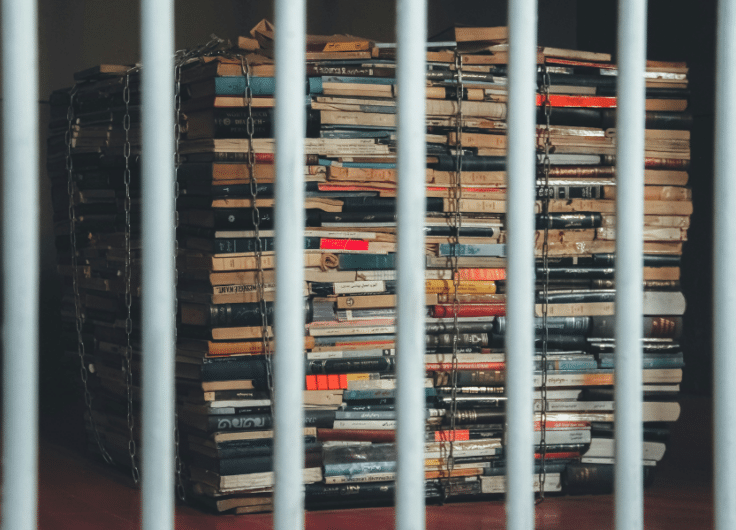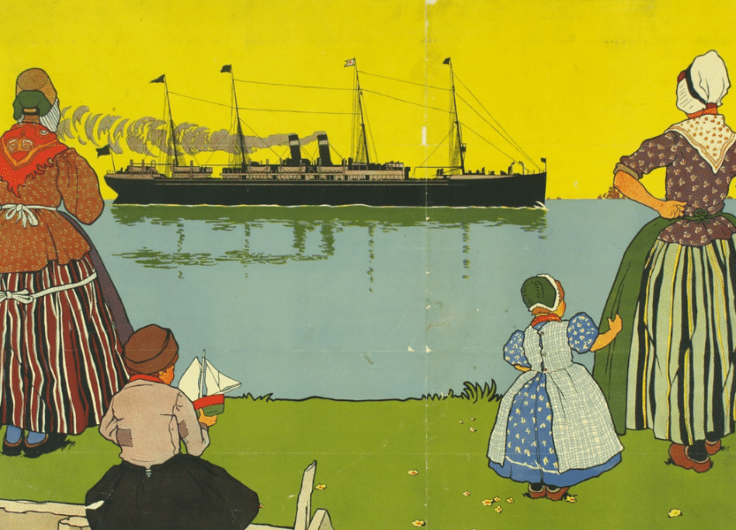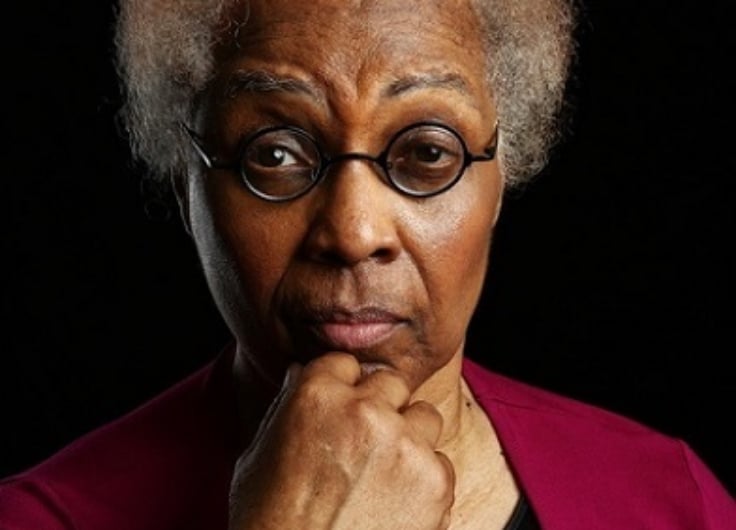Every month, a translator of Dutch into English gives literary tips by answering two questions: which translated book by a Flemish or Dutch author should everyone read? And, which book absolutely deserves an English translation? To get publishers excited, an excerpt has already been translated. Los Angeles-based non-fiction writer and translator Emma Rault makes a plea for a moving memoir of a young man’s struggle with his sexuality and Muslim identity, and for a story set in the twilight zone between waking and sleeping.
Must-read: 'Djinn' by Tofik Dibi
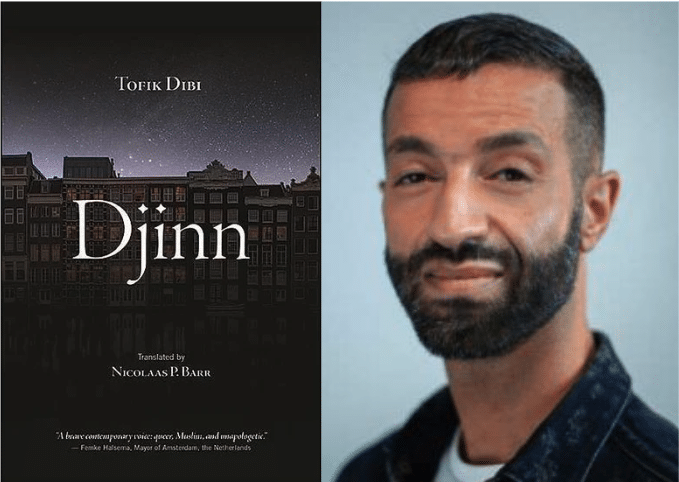
© Center for the Art of Translation
Since childhood, Tofik Dibi, the son of Moroccan immigrants, has lived on a tightrope between them—an internal (or internalized) chorus of disapproval—and it: his painstakingly concealed homosexuality. As a boy, he decides that it is a djinn, an invisible, shapeshifting spirit “created out of smokeless fire” that has taken possession of him: “It’s just like that girl from The Exorcist. That’s how it feels: like a bad spirit that makes me think forbidden, dirty things and wants to act things out.”
He turns to ritual to rid himself of the djinn, but it continues to plague him through an activist adolescence and an unexpected rise to national politics. In internet cafes, an adolescent Dibi stays up “until after midnight, with four empty Coke bottles next to the screen,” debunking people’s misguided ideas about Islam. Dibi starts advocating for the rights of Dutch Muslims and decides to run for office. When, in 2006, he becomes an MP for the Green Left party—at 26, he is the youngest person ever to be elected to the Dutch Parliament—the conflict between his sexual orientation and his public persona puts him under growing pressure.
Dibi’s gripping, moving memoir chronicles this tension. It also shows the contradictions between our personal lives and the times we live in. When he travels to New York City for the first time shortly after 9/11 he is “subjected to an endless circus of questions” at the airport (“whether I’m a believer, how much I practice my religion”), but for him the trip is a longed-for opportunity to dip his toes into the gay scene. Set in Amsterdam, Morocco and New York, between online chatrooms and the halls of Parliament, Djinn powerfully conveys Dibi’s struggle with his sexuality as well as shedding a critical light on xenophobia and islamophobia in the Netherlands.
Tofik Dibi, Djinn, translated from the Dutch by Nicolaas P. Barr, SUNY Press, 2021, 143 pages
To be translated: ‘Nachtbloeiers’ by Ananda Serné
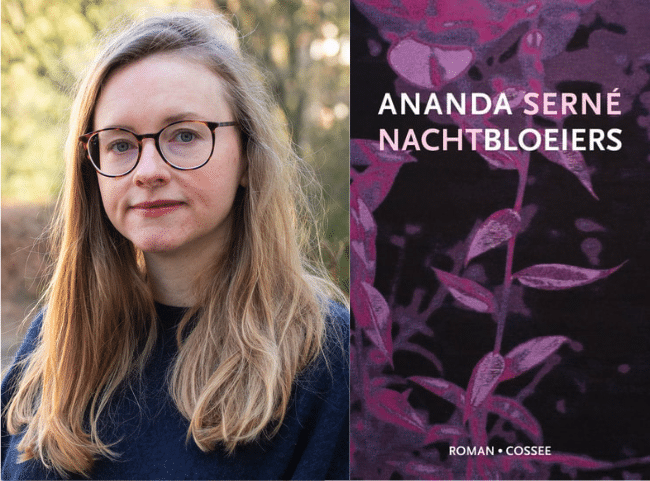
© Cossee
Ananda Serné’s dreamlike, otherworldly debut reminds me of two of my favorite writers, Bette Adriaanse (a Dutch author and visual artist who writes in English; her second novel, What’s Mine, was published by Unnamed Press just a few months ago) and the American filmmaker Brit Marling (The OA, A Murder at the End of the World). Like Marling and Adriaanse, Serné is an uncompromising conceptual thinker who creates a surreal world just askew from reality as a jumping-off point to explore some of the dangers and neuroses of our times.
Nachtbloeiers (Night Bloomers) is set in Norway (where Serné lives part of the time), in a society so plagued by tech-induced insomnia that ‘sleep watchers’ patrol the streets to take exhausted citizens on the brink of collapse to ‘slumber clinics.’ The protagonist, Eliza, has followed her boyfriend to Stavanger, where she works under his supervision at the Institute for Insomnia. When they break up, she begins to feel even more adrift in this cold and foreign place. In an attempt to become more rooted, she starts planting a garden full of night bloomers, flowers that only open at night. Meanwhile, she works on a research proposal on the connection between people’s choice of partner and the quality of their sleep, and reflects on her childhood experiences traveling on a cargo barge captained by her father.
The novel weaves together prose, photos and excerpts from the sleep journal Eliza’s doctor makes her keep into a portrayal of a subtly ominous world that raises questions about technology, transience and the ways in which we’re all sleepwalking through life.
Ananda Serné, Nachtbloeiers, Cossee, 2022, 224 pages
Read our review of Nachtbloeiers
Excerpt from 'Nachtbloeiers', translated by Emma Rault
During the winter months, it stays dark for a long time in Norway. I’ve been awake for some time, but I’m still in bed in hopes of being able to go back to sleep. I watch through the blinds as morning slowly dawns. Since Andreas and I broke up, I get less sleep than ever. Even the drops don’t work. I grow anxious at bedtime, as if falling asleep is an achievement, something I might fail at. I had a doctor’s appointment yesterday. I told him about my growing fear of being unable to get to sleep, that like everyone else I slept little to begin with, and now it seemed to be getting worse. The doctor thought it would help if I kept a sleep diary.
‘Maybe you don’t realize you’ve upped your coffee intake,’ he said. (He doesn’t know that Andreas and I have broken up.)
He gave me a schedule that I’m supposed to fill in every morning and evening.
Complete in AM
Time to bed:
Time when you fell asleep:
Number of times you woke up during the night/for how long:
What were you thinking about:
What did you do:
Final awakening:
Total sleep duration:
Complete in PM
Number of daytime naps/duration:
Activities/circumstances:
Thoughts/worries:
Consumption of coffee/tea/other caffeinated beverages:
Medication:
Sleep drops:
Exhaustion:
Irritability:
(…) At breakfast, I complete the first entry. I decide to be truthful to begin with—I can always change the numbers later. To prevent accidents, the government recommends at least six hours of sleep a night. Almost no one manages that. The doctor said not to worry about the hours, that my answers fall under doctor-patient confidentiality, but you never know. He could pass it all on to a sleep watcher. Though I have a hard time imagining my doctor doing that.



